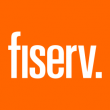Webinar Recap: How to Capitalize on Millennial Paycard Opportunity
 More than 5 million U.S. millennials don’t have a checking account, and a third say payroll cards would be a valuable way to receive wages. With their distaste for traditional bank accounts and high level of interest in payroll cards, millennials represent a natural and significant market opportunity. But it’s not as simple as doling out payroll cards to millennials and watching the revenue roll in, noted George Mavrantzas, vice president, special projects for payroll card pioneer Global Cash Card (GCC) Inc., during a Feb. 15 Webinar entitled Millennials, Paycards and the Future.
More than 5 million U.S. millennials don’t have a checking account, and a third say payroll cards would be a valuable way to receive wages. With their distaste for traditional bank accounts and high level of interest in payroll cards, millennials represent a natural and significant market opportunity. But it’s not as simple as doling out payroll cards to millennials and watching the revenue roll in, noted George Mavrantzas, vice president, special projects for payroll card pioneer Global Cash Card (GCC) Inc., during a Feb. 15 Webinar entitled Millennials, Paycards and the Future.
Presenting propriety research, Mavrantzas noted that payroll products targeting millennials must be designed and administered with the specific needs and wants of that demographic in mind. That means factors like security, ongoing cardholder support in the appropriate channels and portability—all important aspects of virtually any payroll card program—are even more critical when serving millennials.
The kickoff to Paybefore’s Spotlight Webinar series, the presentation provided a deep dive into the data and concepts in Global Cash Card’s 2016 study The New Financial Reality: The Rise of Non-Traditional Wage Management, conducted in partnership with The Center for Generational Kinetics. The study canvassed more than 1,000 adults ages 18 to 65, who had been employed in the previous six months, to gauge their attitudes and perceptions around wage payment options. Among the study’s most important findings was millennials’ overall positive view of payroll cards, with 64 percent of millennial respondents saying payroll cards should be offered as an option by employers and 40 percent saying they feel a company cares about its workers when it offers more payment options.
But while the millennial demographic is fertile ground for payroll providers, products must be tailored to serve that market, Mavrantzas noted. For instance, portability is a must, as many millennials are quick to hop from job to job. “In contrast to older generations, which may put 30 to 40 years in at a single company and then retire, millennials will keep looking for jobs that align with their value set, and may well move on in just a couple of years,” Mavrantzas said. For those cardholders, the ability to bring a payroll card along with them when they switch jobs is crucial, he added.
Lines of Communication
Although millennials are among the most educated about payment options, they expect education and support when it comes to using their cards. And unlike older generations, they don’t typically want to speak to a person, Mavrantzas noted. That means establishing and maintaining an ongoing line of communication with cardholders on their own terms—with support available around the clock, via channels that are most attractive to millennials, including social media and chat.
Finally, while millennials are different in many respects to other age groups, one common theme across generations is in the importance of security, Mavrantzas observed. In fact, security may be even more important for millennials living paycheck to paycheck and using a high percentage of their wages for staples like food and bills. Given the central role wages play in the day-to-day lives of many millennials, providers have to be vigilant in their security and fraud-prevention efforts. And when security issues do arise, they must be treated as a top priority.
“There’s nothing more damaging to the paycard industry than if someone suffers a breach,” Mavrantzas warned. “When it does happen, providers have to adopt a sense of urgency and be available to help cardholders 24/7.” GCC received a 2016 Pay Award for its proprietary Geo-Protect fraud-prevention technology.
Related stories:
- Webinar: Millennials, Paycards and the Future
- Despite Scrutiny, Payroll Cards Attractive to Millennials, Study Finds
- As U.S. Credit Card Debt Increases, Millennials Appear to Turn Away from the Payment Method










































